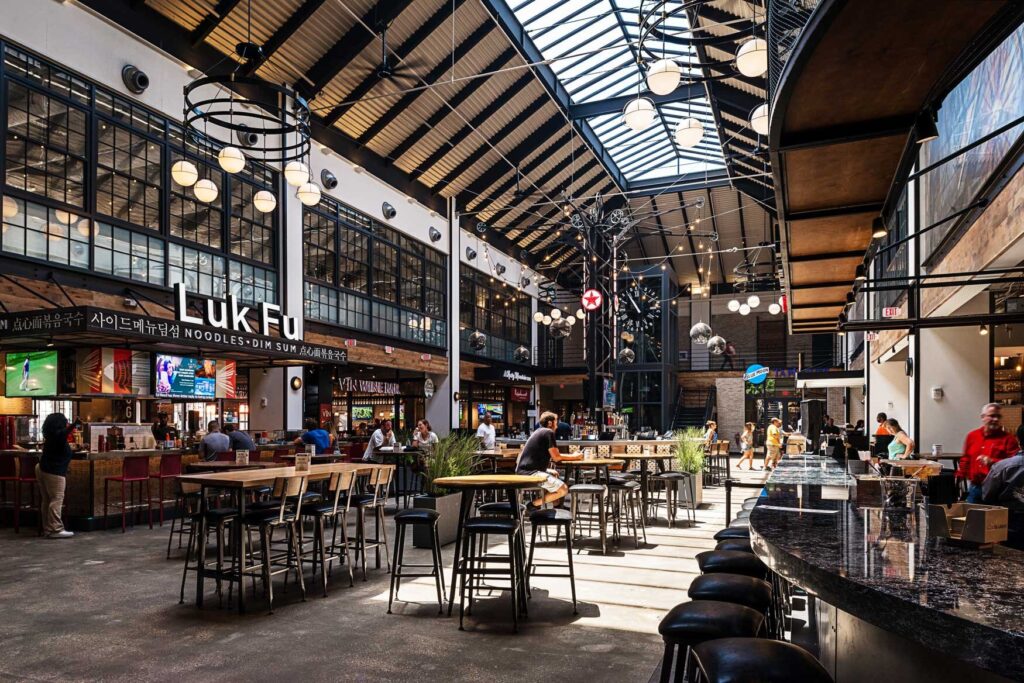This month our project Waterside District in Norfolk, VA was featured in ICSC’s SCT Magazine as an example of “Restorative Retail” It’s an example of how we can use design, proper merchandising, and land-use policies to create vibrant destinations that flourish despite the ‘Amazon-age.’
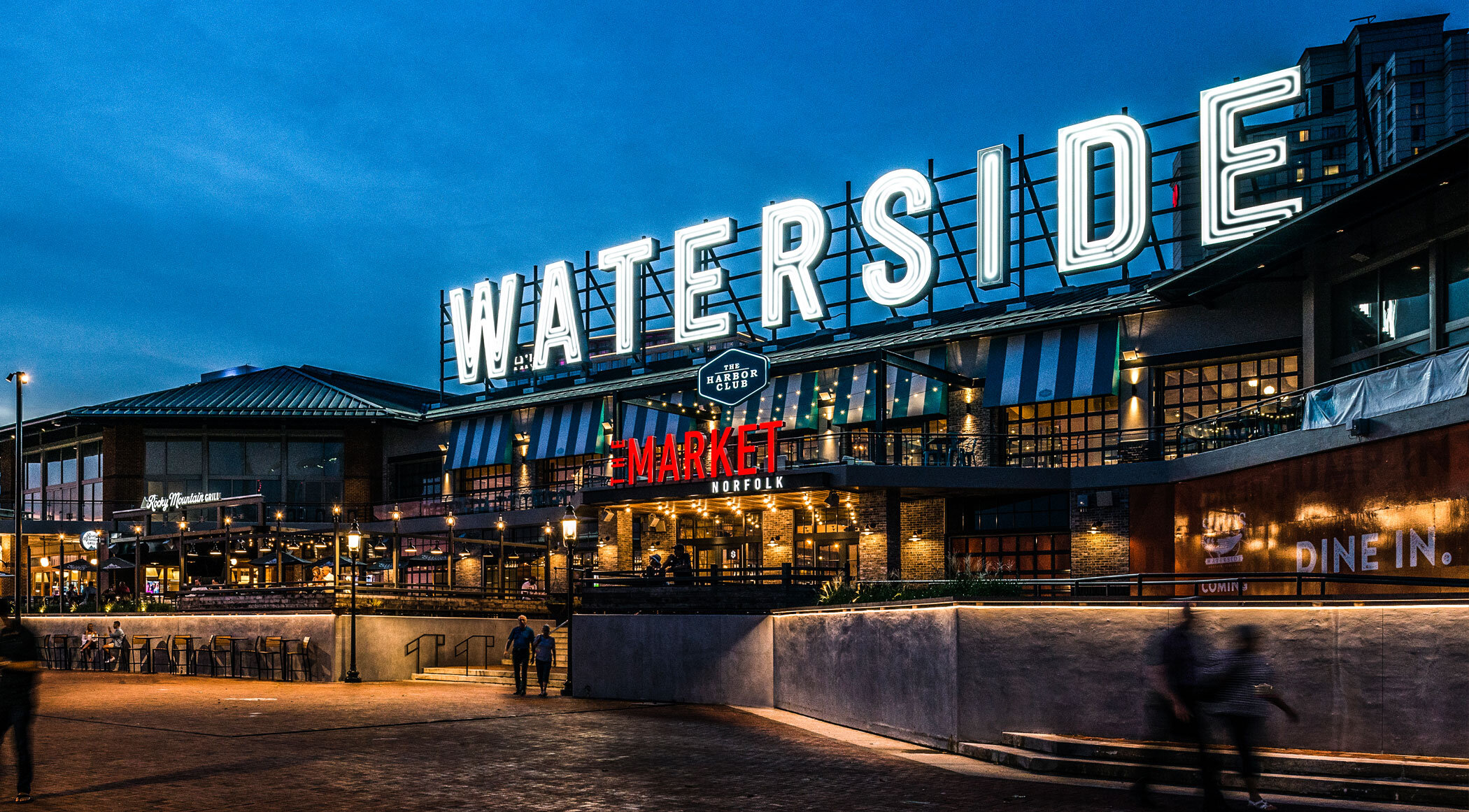
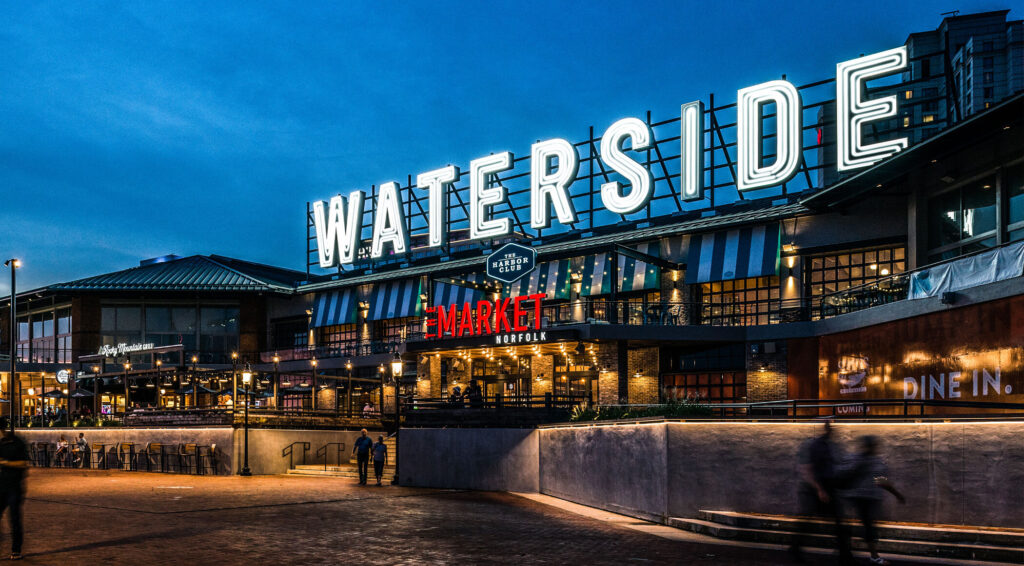
The redevelopment of the Waterside Festival Marketplace by the Cordish Companies is a process that could be repeated in other waterfront markets throughout the Mid-Atlantic Region and beyond. Originally developed by the Rouse Company in the 1980’s, the marketplace had fallen into disuse after several failed attempts to revitalize the center. The Cordish Companies acquired the building after a successful bid responding to an RFP by the City of Norfolk. Aside from the opportunity to control the building, the developer was successful in negotiating the use of the boardwalk and adjacent land for future development.
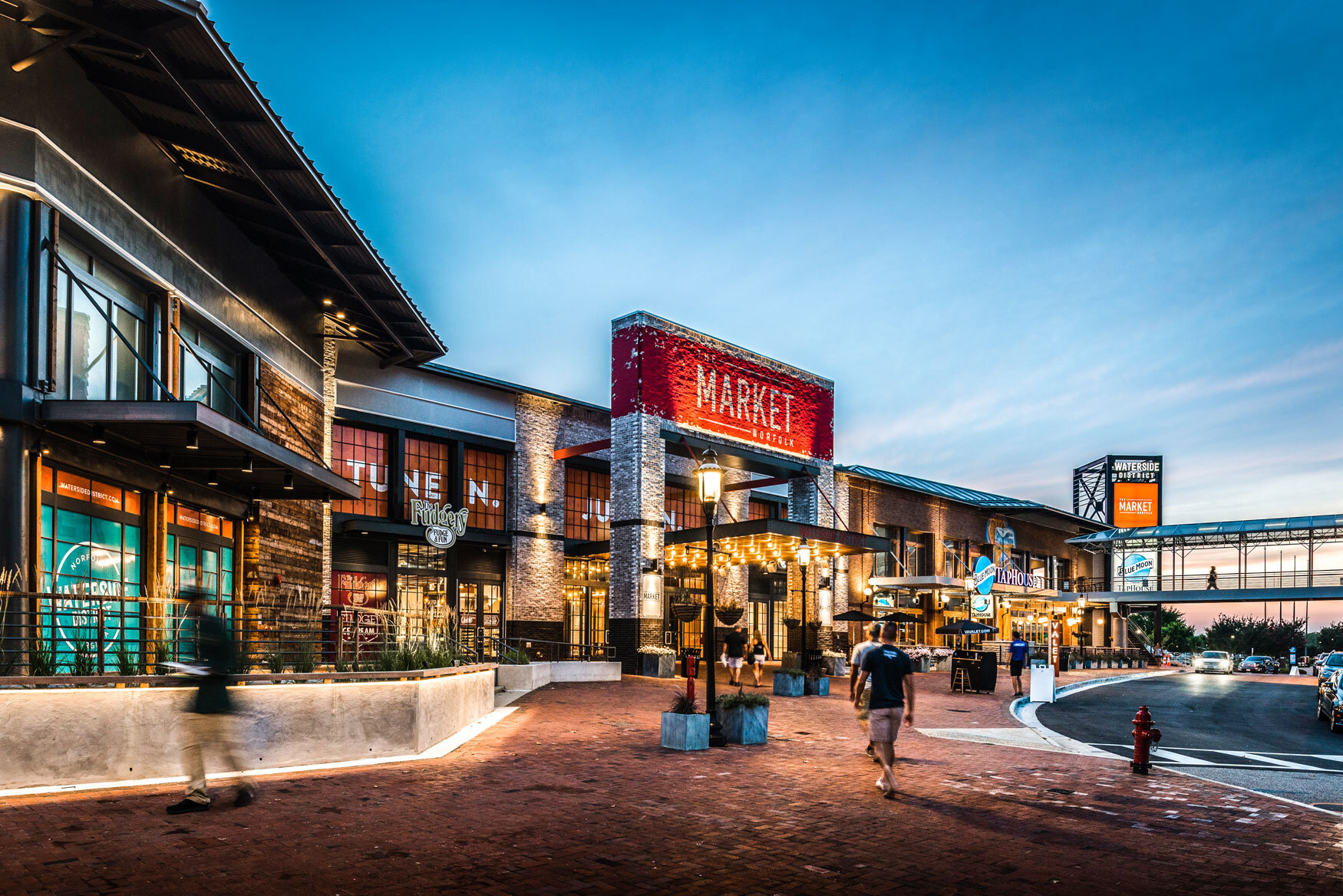
The redevelopment of the Waterside Festival Marketplace by the Cordish Companies is a process that could be repeated in other waterfront markets throughout the Mid-Atlantic Region and beyond. Originally developed by the Rouse Company in the 1980’s, the marketplace had fallen into disuse after several failed attempts to revitalize the center. The Cordish Companies acquired the building after a successful bid responding to an RFP by the City of Norfolk. Aside from the opportunity to control the building, the developer was successful in negotiating the use of the boardwalk and adjacent land for future development.
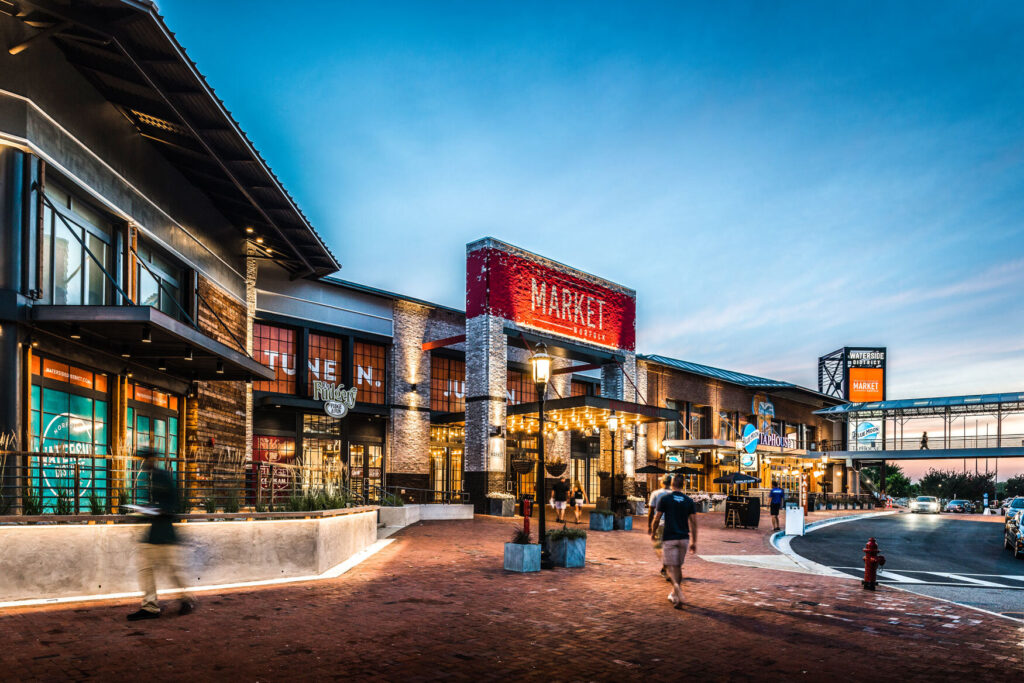
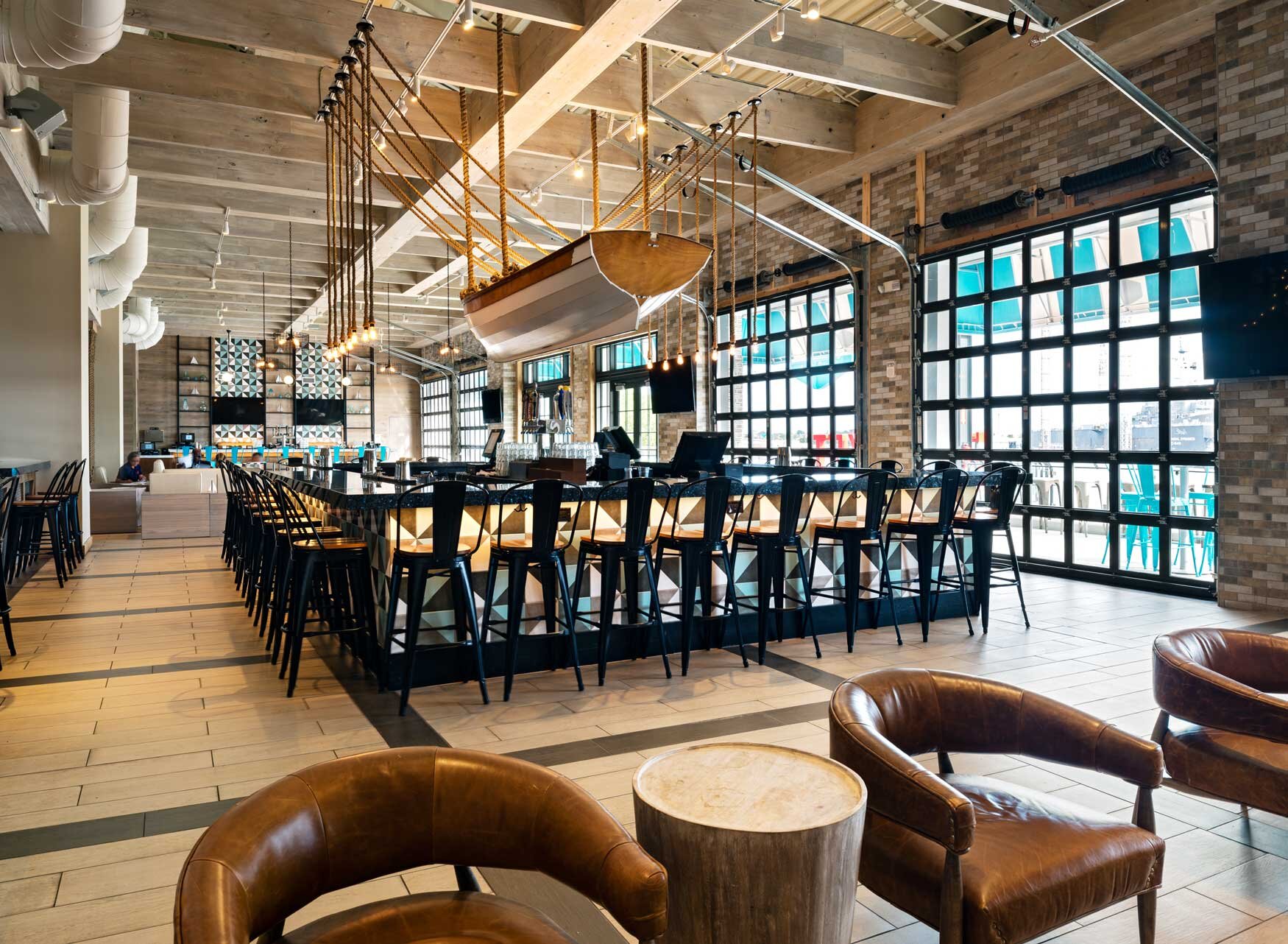
Many of the uses of the entertainment complex required a negotiation with the state alcoholic beverage commission to allow for the uninhibited consumption of alcoholic beverages on the premises. BCT provided exhibits and renderings to indicate how control would be maintained differently than prescribed rules required. This resulted in the appearance of a freer atmosphere of social consumption throughout the development.
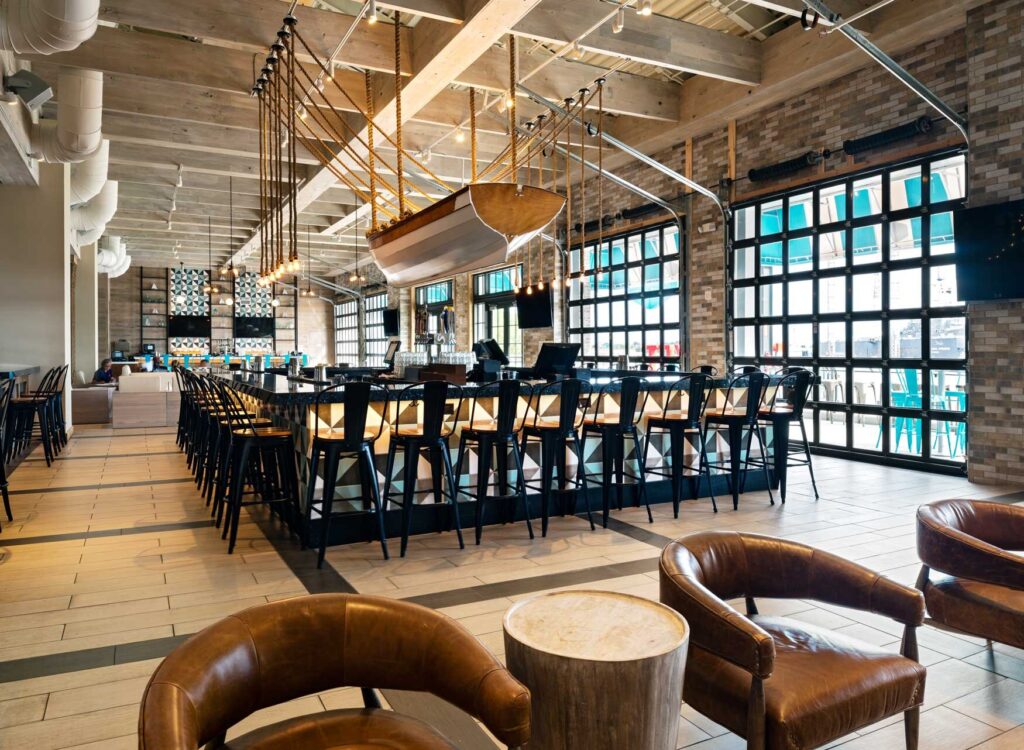
Many of the uses of the entertainment complex required a negotiation with the state alcoholic beverage commission to allow for the uninhibited consumption of alcoholic beverages on the premises. BCT provided exhibits and renderings to indicate how control would be maintained differently than prescribed rules required. This resulted in the appearance of a freer atmosphere of social consumption throughout the development.
The entire project design was required to be vetted through the city’s Architecture Review Board process. The hearing includes the review of building design, signage, landscaping, streetscape, and historic concerns. BCT presented the redevelopment, including the demolition of a portion of the historic building, and was approved with applause. This comprehensive process has culminated in an almost fully leased development within two-years, going from a completely empty retail center to a fully-activated, unique, and iconic offering within the Hampton Roads region.
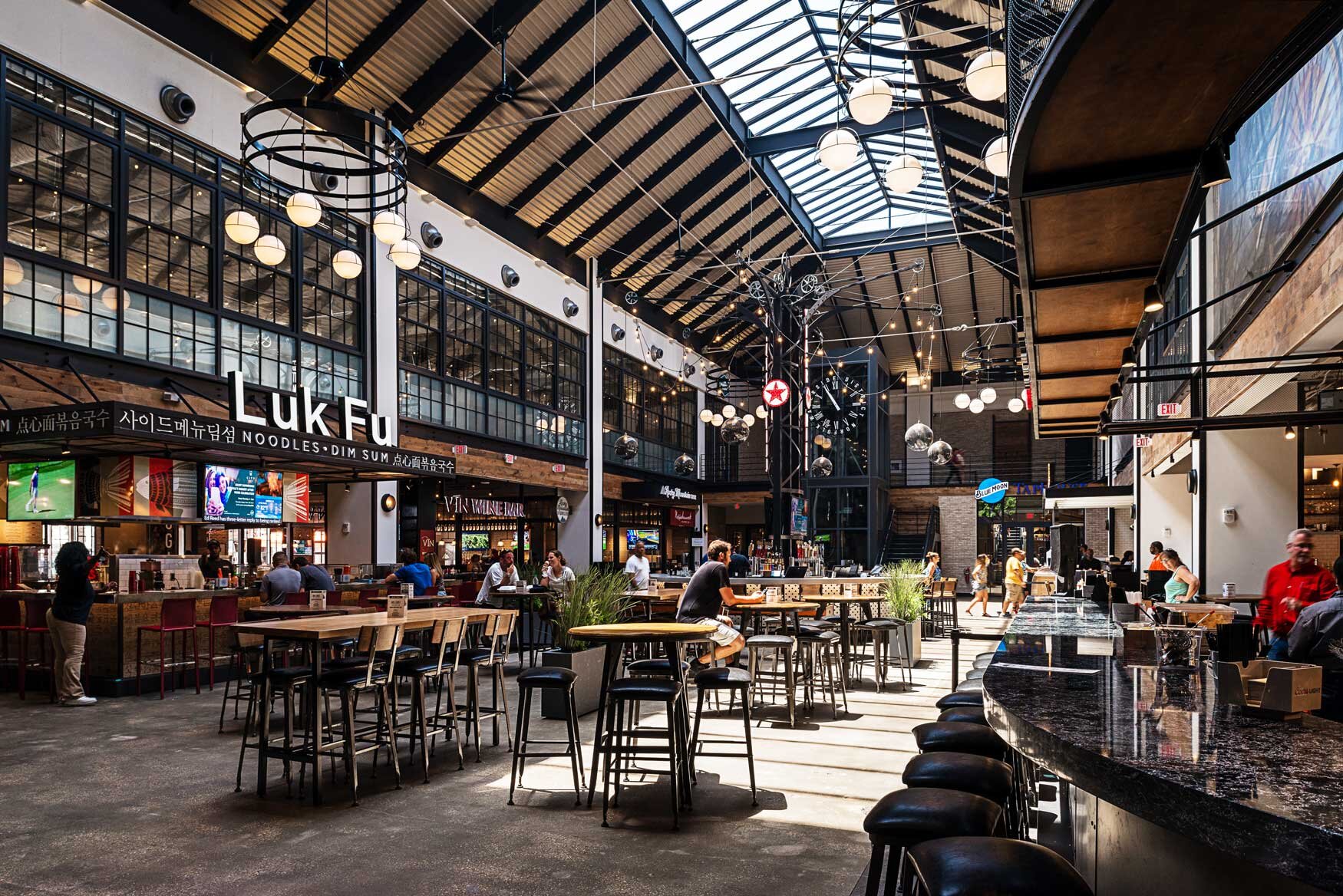
The entire project design was required to be vetted through the city’s Architecture Review Board process. The hearing includes the review of building design, signage, landscaping, streetscape, and historic concerns. BCT presented the redevelopment, including the demolition of a portion of the historic building, and was approved with applause. This comprehensive process has culminated in an almost fully leased development within two-years, going from a completely empty retail center to a fully-activated, unique, and iconic offering within the Hampton Roads region.
